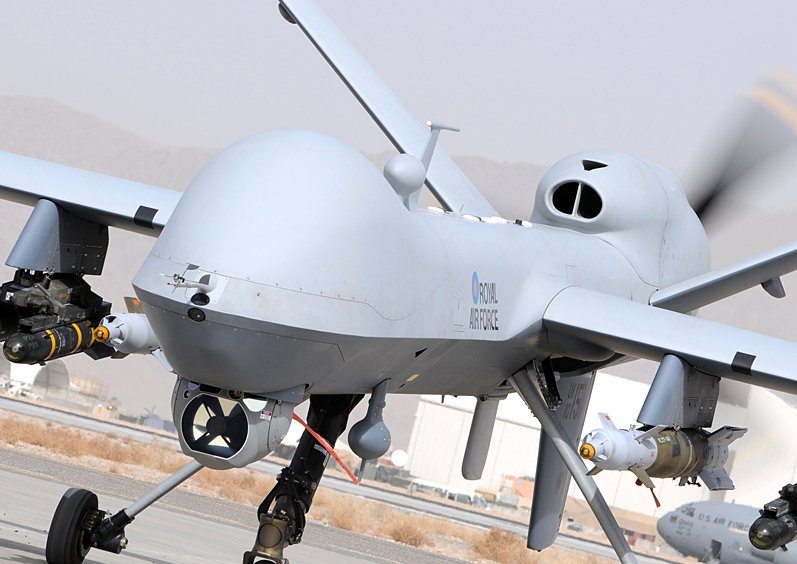Defence Secretary Dr Liam Fox has said today that the long-term vision for Britain’s defence depends upon a sound economic base that enables sustainable military power to be built.
Dr Fox expressed these views during a speech entitled ‘Strong Economy, Strong Defence, Strategic Reach: Protecting National Security in the 21st Century’ at Chatham House, London, today, Thursday 19 May 2011. In the speech he said:
“The requirement to fight, and win, the wars of today is not optional but necessary to protect national security and meet the national interest.
“And when our Armed Forces are committed, they deserve and the country expects that they get the support they need to do the job we ask of them.
“That is why current operations in Afghanistan and in Libya remain the priority for the Ministry of Defence and the men and women of our Armed Forces fighting on the front line get first call on MOD resources.
“But the requirement for strategic thinking, for strategic planning and preparation – the requirement to play the long-game – is equally necessary.”
Dr Fox said that in Defence, contingency planning is central to ensuring that we are prepared for what may come – even if we can’t predict exactly when and where threats may emerge.
Seeking to set out what has been achieved in Defence over the last year to set in place a long-term strategy for the safety, security and prosperity of our citizens, Dr Fox said:
“The Strategic Defence and Security Review has ensured that we will remain in the premier league of military powers. It is not an agenda for retrenchment, it’s an ambitious agenda for transformation over time,” adding:
“This long-term vision for Britain’s defence depends upon a sound economic base that enables sustainable military power to be built – together economic power and military power are the foundation of global influence.
“A proper strategy for the long-term health of our country must balance ends and ways with the means available.
“That is why tackling the crisis in the public finances is not just an issue of economics but an issue of national security too. It is central to sustaining in the long-term Britain’s reach, military power and influence.”
Dr Fox went on to discuss the defence deficit, saying that defence spending represents the fourth largest chunk of public expenditure, so the MOD must play its part in addressing the current economic challenges. He continued:
“The Strategic Defence and Security Review [SDSR] has set the right direction … but staying the course will require sustaining the strict cost-control regime I have put in place at the MOD.
“This will inevitably require that tough decisions are taken on a regular basis to keep the budget on track.
“Following the SDSR we made it clear that there would be a series of complicated second order consequences, including the Basing and Reserves Reviews, as well as the emerging work from the Defence Reform Unit.
“Having completed the current Planning Round, we have started the next Planning Round to take forward the work needed to balance defence priorities and the budget over the long-term.
“The Department has recently initiated a three-month exercise as part of that work to ensure we match our assumptions with our spending settlement.
“This allows us to draw all this work together to inform the next Planning Round.”
Dr Fox said that while the SDSR had made substantial inroads into the £38bn funding deficit, there is still more to be done, adding:
“The Prime Minister has set out his personal view, with which I strongly agree, that achieving our vision for the future structure of our Armed Forces will require year-on-year real growth in the Defence Budget after 2015.”
Regarding the need to build for the future, Dr Fox said that, as the National Security Strategy clearly sets out, our national interest requires our continued full and active engagement in world affairs.
He said coming together as they did, the National Security Strategy, the Strategic Defence and Security Review and the Comprehensive Spending Review set us on a course to maintain our strategic reach, renew military capability on a sustainable basis, and address the structural weakness of the economy.
He said that the adaptable posture we have embraced gives us the best capability to respond with agility to changing threats in an uncertain world, adding:
“This means keeping our forces ready to react swiftly to those things we cannot easily predict. It means upgrading strategic lift capability.
“It means investment in Special Forces. It means being efficient, cutting down on duplication and numbers of equipment types to shorten the tail.
“And it means investing in areas of capability that suit the future character of warfare – such as cyber, intelligence and unmanned technology.
“It also means investing in activities, such as conflict prevention and aid, that prevent the development of threats ‘upstream’, before they require a more demanding military response.
“But in doing so we are not ignoring conventional military power required for flexible, multi-roled, deployable forces.
“By 2020, the RAF will be built around hi-tech multi-role combat aircraft Typhoon and the Joint Strike Fighter [JSF], surveillance and intelligence platforms such as Air Seeker, and a new fleet of strategic and tactical transport aircraft including A400M and Voyager.
“The Royal Navy will have new aircraft carriers with the JSF carrier-variant, a high-readiness amphibious capability, a new fleet of Type 45 destroyers and Astute Class submarines – and ready at that point to accept the new Global Combat Ship.
“The Army, based on multi-role brigades, will be powerful, flexible, fully-equipped for the land environment, and able to operate across the spectrum of conflict.
“We will remain one of the few countries who can deploy and sustain a brigade-sized force, plus its air and maritime enablers, capable of both intervention and stabilisation operations almost anywhere in the world.
“And we will remain a nuclear power, maintaining a minimum credible nuclear deterrent.”
In conclusion, Dr Fox commented on the importance of the work that Lord Levene and his Defence Reform Unit are doing to reform the operating model of Defence, alongside the work of the Chief of Defence Materiel, Bernard Gray, to set the forward equipment programme on a sustainable basis.
He also commented on the work to redraw and rejuvenate the relationship with industry to ensure the taxpayer gets the best deal from the investment in Defence, and ended his speech saying:
“I believe in setting your strategic direction and sticking to your plan unless the facts change. Since we completed the SDSR, the financial position of the country has not changed nor substantially have the nature of the threats we face.
“Let us be honest about this. Those who are arguing for a fundamental reassessment of the SDSR are really arguing for increased defence spending. But they fail to spell out the inevitable result – more borrowing, more tax rises, or more cuts elsewhere.
“The bottom line is that a strong economy is a national security requirement and an affordable defence programme is the only responsible way to support our Armed Forces in the long-term.
“There are no easy answers. There are no silver bullets. There are only tough decisions, hard work and perseverance. To pretend otherwise is to fail in our duty to our country and its people.”











